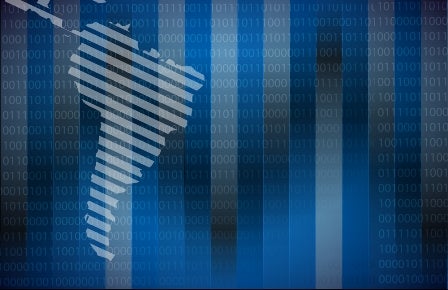How a Database is Helping People Make Better Informed Decisions
It all started seven years ago, when a group of senior research economists realized that by collecting macroeconomic and financial data from the 26 borrowing member countries of the Inter-American Development Bank in a very simple Excel file they were—nearly by accident—creating a region-wide database for monitoring macroeconomic conditions, and one worth sharing with the public.
That was the beginning of The Latin American and Caribbean Macro Watch (LMW) a database of macroeconomic and financial indicators on economic activity, fiscal and external accounts, and financial markets, focused exclusively on Latin American and the Caribbean region.
At first, though, the LMW interface worked under several constraints. The data were taken from national sources, with only limited verification of their quality, and the meta-data containing sources and definitions offered little detail. Even with those limitations, the growth of the Internet and the proliferation of databases enabled the LMW to reach a wide audience, with over 20,000 annual queries.
The pace of data generation has accelerated since the LMW was first created and a growing share of the population has been empowered by the democratization of data. In response to this changing environment the Research Department is launching an upgraded LMW designed to increase access to the region’s macroeconomic indicators and help users to make better informed decisions. The upgraded LMW is in effect a one-stop shop, drawing on public sources from each of the 26 borrowing member countries in a systematized and user-friendly interface that transforms public data into accessible information for anyone who needs to know key macroeconomic and financial indicators.
LMW, supporting nearly 600 data series, allows users to download raw and transformed data for a multitude of indicators. Transformations to raw series, such as seasonal adjustments and indicators expressed as percentage of GDP or in constant prices, facilitate the use of the data by novice and professional users alike. Furthermore, the LMW allows figures to tell a story with historical data—starting in 1990—at monthly, quarterly, and annual frequencies. New features include pre-formatted country-specific reports with a snapshot of key macroeconomic indicators.
Additionally, the LMW is a unique tool for those interested in analyzing macroeconomic data for the smaller economies of the region, since its extensive coverage of those countries is unmatched even by commercial and proprietary sources.
LMW increases the visibility of public data and at the same time provides users with the tools they need to draw insights. According to Research Economist Julián Caballero, “LMW is definitively a good place to access the best sources of data in the region. It allows users to filter, analyze, draw conclusions and gain insights into: economic activity and employment, prices and wages, fiscal accounts and public debt, external accounts, financial markets and money and banking.”
This renewed effort to improve access to data is part of the IDB’s “Data for Development” initiative, which is a platform that offers access to a variety of economic and social indicators on the region. With these tools, the LMW responds to the demand for greater information access and promotes the democratization of Latin American data while consolidating data from isolated sources in one single platform. In an era saturated with information, isolated data is insufficient; however, when users have the means to see trends and make predictions, they are then presented with a true knowledge bridge that can eventually lead us to make better informed decisions.


Leave a Reply